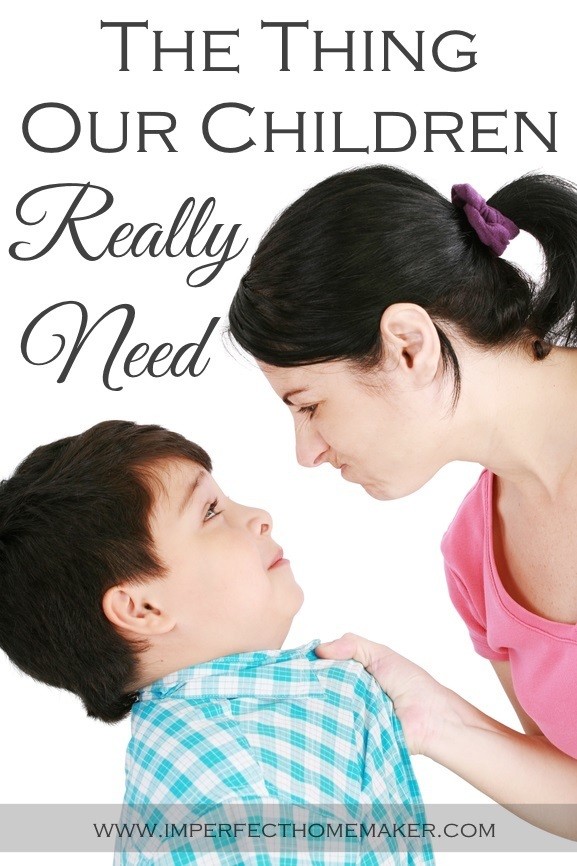The Incredible Power of a Soft Answer
We were practicing our daily memory verse when things started to fall apart. My son decided he wasn't interested in focusing on school work any more and I was trying to help him wake up his brain a little bit.
“Stand up straight and look at me,” I said quietly and gently.
“I am standing up straight!” he whined. Small tears of frustration appeared at the corners of his eyes.
“No. You're leaning on the wall.” I continued on softly. “I need you to stand up all the way and look right at me — hey, where are you going now?” I continued speaking softly and gently.
“I just want to sit down! Why can't I just sit down?!”
Our discussion continued on this way for a few more minutes. I gently explained what I needed from my son and why, as he bristled against being told what to do.
“Son, did you know that mommy doesn't tell you things just because I feel like bossing you around? I know what it feels like to want to do exactly the opposite of what your mom tells you. I felt exactly that way sometimes when I was a kid. But can you trust that I'm telling you things for a specific reason and not just because I enjoy bossing you around? If you won't make things into a big deal, I promise I won't make them into a big deal either. Okay?”
A small smile began to form around the edges of his mouth. His posture began to relax. This time when I asked him to stand up straight and look at me, he did.
We finished the rest of school day without another problem.
Now, I'm not telling you this story to make myself sound like a perfect mother — because I'm not even close. I mess up more times in a day than I'd like to admit.
But this was one of those, “Why don't I handle things like this more often?” moments.
See, here's the verse that came to my mind when the situation arose: “A soft answer turneth away wrath, but grievous words stir up anger.” (Proverbs 15:1)
My child was already bristling against what I was telling him to do. Now, most times I would have bristled right back at him. I would have gotten frustrated that he was turning a simple command into something far more than it needed to be, and I would have shown that frustration in my voice inflection and body language. Even if I weren't actually speaking loudly in volume, my tone of voice and my stiffened posture would not be “a soft answer.” And it would be the worst thing I could do in that situation because my lack of a soft answer would not help my child feel any more willing to do what he was told. It would make him even more defensive than he already was.
I realized in that moment that too often I let my child dictate the terms of each confrontation that arises between us. Just because he is being headstrong and childish does not mean that I need to respond with the same attitude. Doing so will only turn into a clash of wills and an ordeal that really ought not be an ordeal at all.
Why should I let my child call the shots? Why do I let his attitude determine what mine will be?
I realized the incredible power of a soft answer that day.
I also remembered another verse my husband and I had just discussed the night before:
“How forcible are right words! but what doth your arguing reprove?” (Job 6:25)
Job was responding to his friends' false accusations against him, and the point I gathered was basically this:
Right words spoken in the right way are extremely powerful. But argumentative words, or even true words spoken in an argumentative way are not going to get you anywhere with the person to whom you are speaking.
I took away a pretty powerful lesson after our little incident:
I need to choose the right words and I need to speak them in the right way.
Doing this is going to have far more power than the most forcible words and tone of voice I can muster.
No more do I need to allow my children to dictate the tone of a confrontation. It's really hard for them to bristle against someone who is speaking softly and gently. If I'm feeling too riled up inside, I need to step away until I'm ready to continue the conversation with a soft answer. If I let grievous words slip out of my mouth, the Bible says those words are going to stir up anger.
Provoking my child to wrath is something I know I shouldn't be doing as a parent, and I wouldn't purposely do it. But it never occurred to me that something as simple as using an irritated tone of voice could be doing just that.
I'm excited to see how intentionally using a soft answer will change the way I deal with my children — and change the way they respond!
You may also like:



